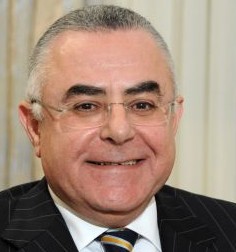
(DNE File Photo)
By Doaa Farid
The Egyptian Manufacturers Association recently discussed with Minister of Planning Ashraf El-Araby primary challenges facing the industrial sector, the government’s new stimulus plan, according to a press statement by the Ministry of Planning.
The delegation of manufacturers also called for lower financing costs from the banking sector and an increase in resources to support exports.
El-Araby meanwhile conveyed the government’s intention to boost the industrial sector through the allocation of about EGP 500m from the state budget to support insolvent factories, a plan which the Ministry of Industry is studying with the help of the banking sector.
The attendees of the meeting stressed the need to complete the government’s current projects, especially those “which will have a positive impact on the industrial sector,” the statement said. They also reviewed the wage policy and asserted the need to determine minimum wage in relation to annual gross income.
The National Council for Wages agreed in August to formulate a national wage policy which will include studying the maximum and the minimum level of income at the national level, in addition to linking wages and pensions to the standard of living.
According to the statement, the delegation promised to submit an integrated vision about the training programs for workers, as well as a strategy to develop the Sinai through the establishment of industrial zones linked to the network of roads and ports.
This meeting came amid discussion over the government’s economic stimulus plan with manufacturers. The interim cabinet adopted an economic stimulus plan which will aim to create a 3% growth rate over the current fiscal year through additional investment projects worth EGP 22.3bn in the areas of housing, transport, water and sanitation and developing industrial zones.
However, Abu El-Ela Abu El-Naga, a member of the General Federation of Investors, suggests that the government should focus on small and medium projects in order to achieve the desired growth rate.
“The stimulus plan of the government should have focused on investment projects which will involve a large number of workers so as to decrease the level of unemployment,” Abu El-Naga said, adding that these additional projects should work on a social as well as economic level.
Abu El-Naga said he believes that these large industrial projects “which depend on machines instead of manpower” will not be sufficient to achieve the proposed 3% growth rate, and the government should instead focus on funding micro-investment projects.



